JAJSEJ6A January 2018 – April 2018 TLV6703
PRODUCTION DATA.
- 1 特長
- 2 アプリケーション
- 3 概要
- 4 改訂履歴
- 5 Device Comparison Table
- 6 Pin Configuration and Functions
- 7 Specifications
- 8 Detailed Description
- 9 Application and Implementation
- 10Power-Supply Recommendations
- 11Layout
- 12デバイスおよびドキュメントのサポート
- 13メカニカル、パッケージ、および注文情報
パッケージ・オプション
メカニカル・データ(パッケージ|ピン)
サーマルパッド・メカニカル・データ
発注情報
7.8 Typical Characteristics
at TJ = 25°C and VDD = 5 V (unless otherwise noted)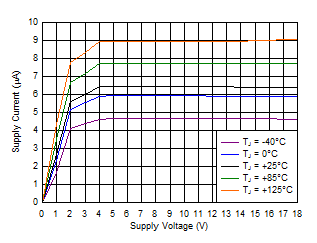
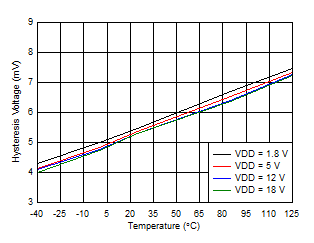
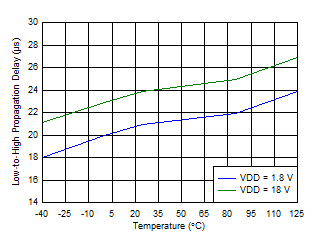
(Low-to-High Transition at Sense)
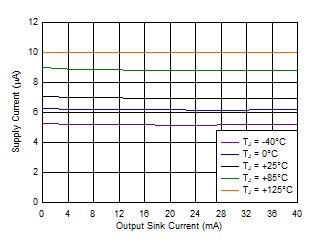
Output Sink Current
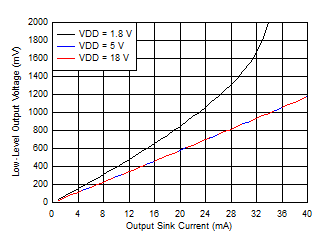
Output Sink Current (0°C)
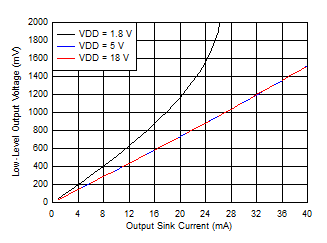
Output Sink Current (85°C)
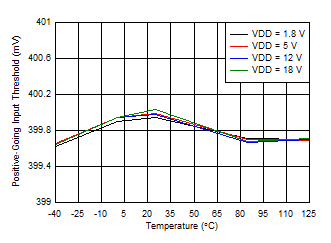
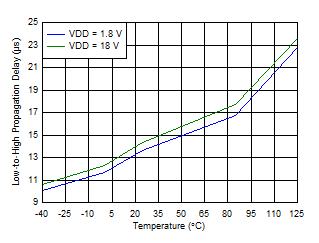
(High-to-Low Transition at Sense)
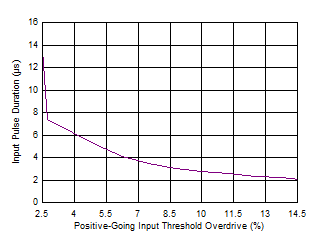
| SENSE = negative spike below VIT– |
Threshold Overdrive Voltage
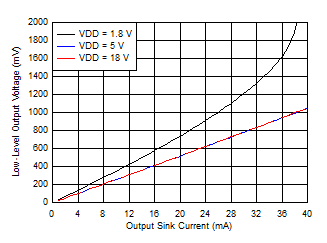
Output Sink Current (–40°C)
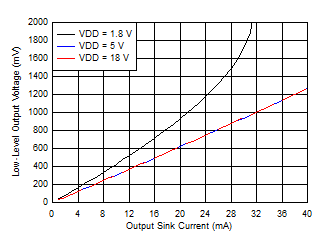
Output Sink Current (25°C)
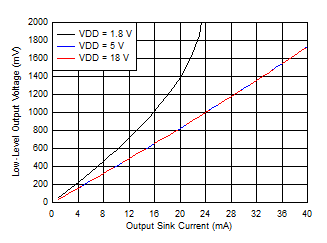
Output Sink Current (125°C)